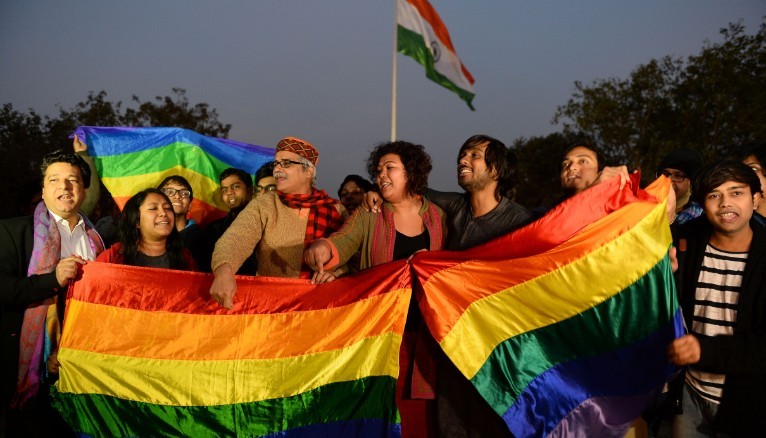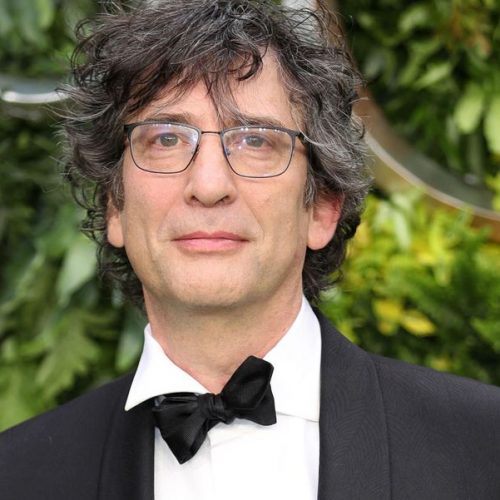India’s top court decriminalizes gay sex, overturning more than 150 years of anti-LGBT legislation
India’s Supreme Court has struck down a colonial-era law criminalizing consensual gay sex, overturning more than 150 years of anti-LGBT legislation.
Section 377, an archaic law imposed during British rule that penalizes intercourse “against the order of nature,” had carried a maximum sentence of life imprisonment.
The decision made on Thursday by five Supreme Court judges to repeal the law and legalize gay sex between consenting adults, follows weeks of careful deliberation in New Delhi.
For the lawyers representing more than a dozen gay and lesbian Indians who petitioned the court, the legal acceptance of same sex relations finally signals an end to the harassment and persecution of the LGBT community.
Though the law was rarely enforced in full, it helped create a culture of fear and repression within the LGBT community, said campaigners. A change in legislation “creates a space of freedom where you can start expecting justice,” Danish Sheikh, a law professor at Jindal Global Law School and LGBT advocate, told CNN.
Long Battle
Thursday’s historic ruling is the culmination of a lengthy legal battle for equality in a country where homosexuality is often not understood or accepted.
In 2009, the Delhi High Court ruled that the ban on consensual gay sex violated the fundamental rights of a citizen. Though the decision technically only applied to the Delhi region, it was quickly overruled by the Supreme Court in 2013, following a petition launched by a loose coalition of Christian, Hindu and Muslim groups.
In its ruling, the Supreme Court said only a “minuscule fraction of the country’s population constitute lesbians, gays, bisexuals or transgenders” and it was therefore “legally unsustainable.”
During the latest hearings, lawyers questioned the constitutional basis of that earlier ruling.
“It was a wrong judgment. It was not legal and it was based wrongly on the tenets of the constitution,” said Colin Gonsalves, one of the lawyers representing the current group of petitioners, in July.
That case was strengthened last year, when the Supreme Court moved to uphold the constitutional right to privacy, including for the LGBT community.
The landmark ruling, which declared sexual orientation to be an essential attribute of privacy and that discrimination against an individual on the basis of sexual orientation was unlawful, has galvanized campaigners.
“Last year’s ruling eviscerated the 2013 judgment,” said Gonsalves. “There is no issue now. There is not much left to argue,” he added.
Opponents of moves to overturn the law rested on religious and moral objections. In an interview earlier this year, lawmaker Subramanian Swamy, a prominent member of the ruling Bharatiya Janata Party (BJP), described the legalization of gay sex as a “danger to national security” and “against Hindutva.”
Hinduism has traditionally maintained a flexible, non-prescriptive view of sexuality. However, in recent years hardline Hindu groups have taken a more conservative approach.
Dehumanizing Colonial Law
Out of the estimated 49 former British colonies that criminalize homosexuality, 31 still have laws based on the original colonial anti-LGBT legislation, according to Lucas Mendos, co-author of the 2017 International LGBTI Association “State-Sponsored Homophobia” report.
Until today, nine still had the original British laws in place more or less unchanged, including India.
According to India’s National Record Bureau, more than 2,100 cases were registered under the law in 2016. India did not maintain a separate database of prosecution under section 377 until 2014.
Arif Jafar, one of the current group of petitioners whose case the Supreme Court ruled on, was arrested in 2001 under Section 377 and spent 49 days in jail.
Jafar now runs an informal support group in the northern state of Uttar Pradesh. The group, named “Trust,” provides counseling, support and sexual health services to gay and transgender persons.
In his petition, Jafar described the experience as dehumanizing and a violation of his fundamental rights. He also alleged that he was beaten and humiliated every day because of his sexuality.
Many of those that campaigned in India against Section 377 pointed out that the law didn’t only trap India’s LGBT people in the closet, but invited other forms of discrimination, providing a cover for blackmail and harassment.
The law, which was first introduced by British colonizers in the 1860s, was partly the product of a strict Victorian moral code, born of a Christian faith which defined sexual activity as taboo.
But attitudes have changed, said Danish Sheikh, the law professor, who has worked on previous legal challenges to Section 377.
“After 2013, there was a lot of energetic activism in the country. The kind of outrage that was felt resonated across civil society, outside the LGBT community,” said Sheikh.
“People had started to think of themselves as legal subjects and society had started to tolerate and even accept queer persons.”
As supporters celebrate the decision, activists will now be shifting focus to the broader issue of equality.
“The next step is to start looking at issues of rights. Right now, it is just decriminalizing,” Anjali Gopalan, founder of the Naz Foundation, which has spearheaded the fight against Section 377, told CNN.
“The right that every citizen of the country should have access to and should not be taken for granted. Like the right to marry, the right to adopt, the right to inherit. Things that no one questions and that are clearly denied to a certain section of citizens.”
About author
You might also like
Neil Gaiman hilariously responds to Christian group demanding Netflix cancel Amazon’s Good Omens
Neil Gaiman knows how to take a joke, even an accidental one. The author responded to the petition created by a Christian group, Return to Order, for Netflix to cancel
“Gay rights are human rights.” Hillary Clinton to Donald Trump
Hillary Clinton wants Donald Trump to officially come out against the alleged “gay purge” in Chechnya. During a fundraising dinner for New York’s The Centre, she said, “Gay rights are
Aaliyah Allegedly Checked Her ‘Romeo Must Die’ Costar for His Homophobic Remarks
It has been nineteen years since R&B star Aaliyah passed away, but her legacy and impact still hover over pop culture today. Pop stars like Zendaya and Chloe X Halle










0 Comments
No Comments Yet!
You can be first to comment this post!